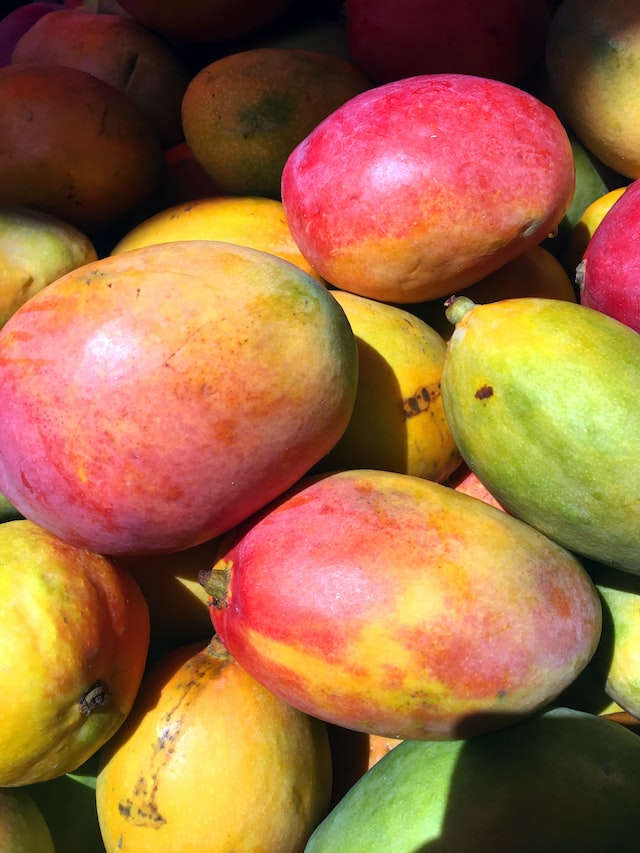"What's the plural of mango?"
The plural of mango is mangoes or mangos.
Definition of mango:
A tropical fruit with a thick skin, juicy sweet-tart flesh, and a large round seed in the center.
Is it mangos or mangoes?
The word "mango" comes from the Portuguese word "manga" which was borrowed in the 15th century, and it is also the origin of the words in other languages like Spanish and French.
The plural form of "mango" is "mangoes". The plural of "mango" is formed by adding "-es" to the singular form, following the general rule that nouns ending in -o add the suffix "-es" to form their plural.
This is a regular plural formation rule, and it's used for many other words in English like "potato" - "potatoes" , "tomato" - "tomatoes", "hero" - "heroes" and so on.
The reason for this rule is historical, it comes from the way that nouns were inflected in Old English and other Germanic languages, which was the ancestor of modern English.
In those languages, nouns were inflected to indicate their grammatical case and number, such as singular or plural. As these languages developed, the inflections were simplified and many were lost, but some of the plural inflections were retained and became part of the modern English language.
Plural of Mango Example Sentences
Here are a few sentences that illustrate the difference between "mango" (singular) and "mangoes" (plural):
- "I picked a ripe mango from the tree." (singular)
- "I picked several ripe mangoes from the trees." (plural)
- "This smoothie recipe calls for one mango" (singular)
- "I'm going to make a big fruit salad with pineapples, papayas and a lot of mangoes" (plural)
In these examples, "mango" is used to refer to one individual fruit while "mangoes" is used to refer to more than one individual fruit. It's important to note that when referring to the fruit, "mangoes" is the standard plural form.
Mangos vs. mangoes
The graph shows the occurances of the plural of mango in written English since 1800 using Google's Ngram Viewer.
Fun Fact:
Mangoes are a rich source of antioxidants and vitamins, particularly vitamin C and beta-carotene. They are also low in calories and contain enzymes that help to aid digestion.
A fun fact about the history of mangoes is that they have been grown in India for over 4,000 years and considered as a symbol of love and fertility.
In many cultures, including Hindu, mangoes are also known to be a symbol of good luck and prosperity.
Another fun fact is that Mangoes have a very diverse genetic makeup, it is claimed that there are over 1,000 different varieties of mangoes known worldwide. Each variety has its own unique flavor, texture, and color.
Mangoes are also known for their versatility in cooking and cuisines, they can be eaten ripe or unripe and used in sweet or savory dishes, they can be made into jams, jellies, chutneys, or pickles. They can also be mixed in smoothies or ice-creams.
Finally, India is the world's largest producer of Mangoes, but they are also widely cultivated in other tropical countries like Brazil, Indonesia, China, Thailand, and Mexico.
Sources:
https://www.producebluebook.com/know-your-commodity/mangos/
https://agritech.tnau.ac.in/govt_schemes_services/aas/mango.html

